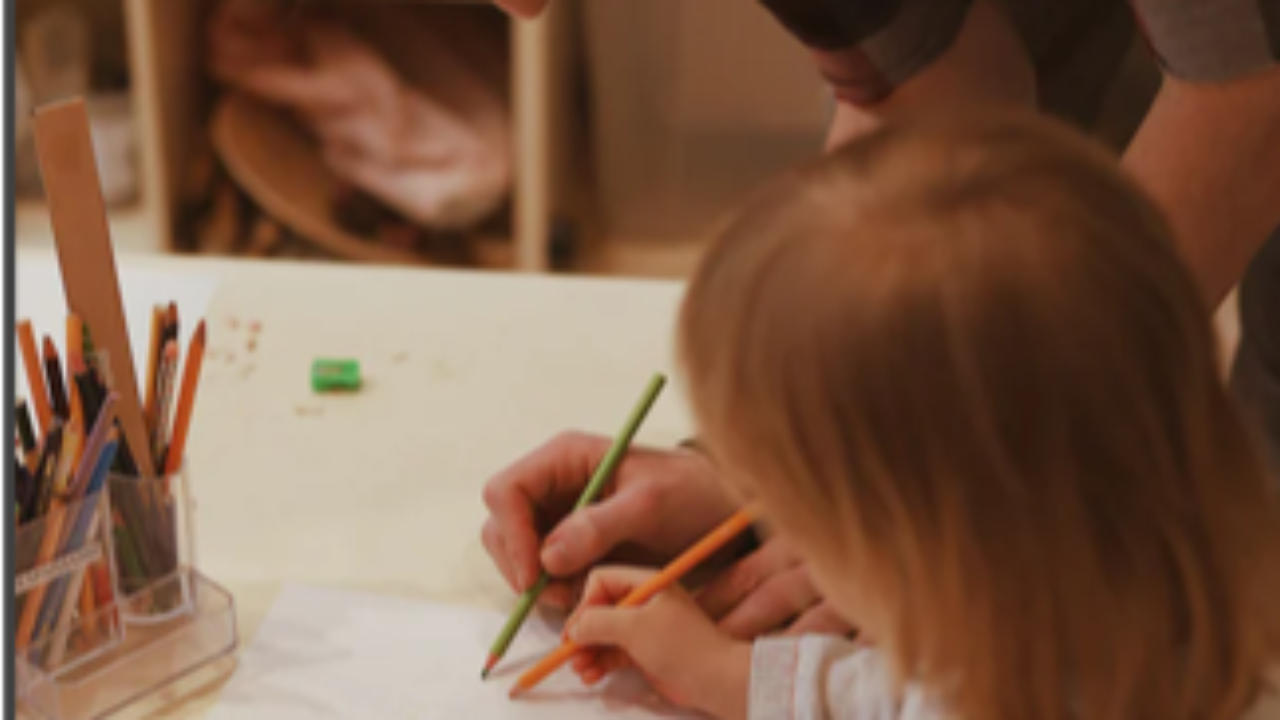The Only Early Years Award That Includes Parents (And Why This Changes Everything)
Aug 17, 2025
There's a moment every early years practitioner knows too well. You've spent weeks implementing a new approach with a child—perhaps supporting their emotional regulation or encouraging their independence. You're seeing real progress, feeling hopeful, and then a parent's comment completely undermines everything: "Oh, we just give him what he wants at home to avoid the fuss."
This isn't about blame. Parents aren't deliberately sabotaging your efforts. They're doing what they think is best with the understanding they have. But this disconnect between home and setting isn't just frustrating—it's actively harmful to children's development.
I've watched countless practitioners struggle with this challenge, feeling like they're fighting an uphill battle where every step forward is met with two steps back. But what if I told you it doesn't have to be this way? What if there was a professional development approach that equipped parents with the same deep understanding you're developing? An approach that turns parents from unknowing obstacles into informed allies?
The Only Early Years Award That Includes Parents (And Why This Changes Everything)
Picture this: You've just implemented a new approach to managing children's emotions in your setting. Your team is on board, the children are responding well, but then a parent undermines everything by saying, "We don't do it that way at home."
Sound frustratingly familiar?
This disconnect between home and setting isn't just annoying—it's harmful to children's development. When the key adults in a child's life aren't aligned, children receive mixed messages that can confuse their understanding and slow their progress.
The Partnership Problem in Early Years
For too long, early years professional development has focused solely on practitioners, leaving parents out of the equation. We train our teams, implement new approaches, and then wonder why change feels like an uphill battle.
But children don't exist in isolation. They live in a complex web of relationships that includes parents, carers, and extended family.
When these relationships work in harmony, children thrive. When they pull in different directions, children suffer.
Why Traditional Approaches Fall Short
Most CPD programs treat parent communication as an afterthought:
- "Send a newsletter home"
- "Put up a poster"
- "Mention it at pick-up time"
But surface-level communication doesn't create understanding. Parents need the same deep knowledge about child development that we're building in our teams.
The Revolutionary Approach
The Nurturing Childhoods Early Years Practitioner Award is the only qualification that includes comprehensive materials for parents. Every module you complete as a practitioner has a corresponding talk and resource for parents.
This means:
- Parents understand the 'why' behind your approaches
- Home and setting practices align naturally
- Children receive consistent messages
- Parents become partners in development, not obstacles
What This Looks Like in Practice
Scenario 1: Managing Emotions
- Your team learns about children's emotional development
- Parents receive resources about supporting emotions at home
- Both understand that emotional meltdowns are normal and necessary
- Everyone responds consistently with empathy and guidance
Scenario 2: Supporting Learning
- Your team focuses on deep, meaningful experiences
- Parents understand why play-based learning matters
- Both resist pressure for premature academics
- Children develop strong foundations for future learning
The Four Pillars of Understanding
Our approach ensures everyone understands:
The Secure Child - How to support emotional development and manage behaviour effectively
The Happy Child - Building confidence, competence, and social skills
The Learning Child - What real learning looks like in the early years
What Everyone Should Know - Core principles that guide all interactions with children
Real Impact, Real Results
When parents and practitioners work from the same understanding:
- Children's behaviour improves faster
- Learning becomes more meaningful
- Stress levels decrease for everyone
- Parents feel confident and supported
- Teams feel less isolated
The Evidence Base
This isn't just a nice idea—it's backed by research. Studies consistently show that children make greater progress when home and setting approaches align. The Department for Education's Professional Development Standards emphasize collaboration for exactly this reason.
More Than Just Training
The NCEYP Award creates Nurturing Childhoods Settings—places where:
- Every adult understands child development
- Practices are evidence-based and consistent
- Children receive the experiences they need to thrive
- Parents feel genuinely partnered in their child's journey
Your Next Step
Traditional CPD leaves you working in isolation, fighting uphill battles against misunderstanding and mixed messages. The Nurturing Childhoods Early Years Practitioner Award gives you something different: a whole community approach that transforms outcomes for children.
Because childhood is finite. Every experience matters. And every child deserves adults who understand what they need.
Ready to bridge the gap between home and setting? Join the growing community of Nurturing Childhoods practitioners who are transforming early years experiences.
Learn more about nurturing your learning child in the talks, newsletters and materials available in the Nurturing Childhoods Community
Stay connected with news and updates!
Join our mailing list to receive the latest news and updates from our team.
Don't worry, your information will not be shared.
We hate SPAM. We will never sell your information, for any reason.





